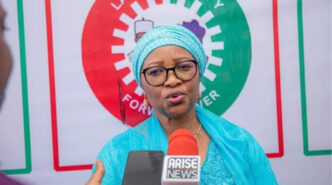International Air Transport Association (IATA) has removed Nigeria from the list of countries withholding airline revenues, commonly referred to as blocked or trapped funds.
Gatekeepers News reports that Kamil Al-Awadhi, IATA’s regional vice-president for Africa, Middle East, and Europe (AME), revealed this while speaking at a news conference during the association’s recent annual general meeting (AGM).
Al-Awadhi noted that while blocked funds remain a challenge in the region, there have been significant improvements in countries like Nigeria, Egypt and Ethiopia.
He said, “Significant improvements have been made in Nigeria, Egypt and Ethiopia over the last year, with Nigeria no longer on the list of blocked funds countries.”
“However, countries in AME continue to top the blocked funds list. Mozambique is currently withholding the largest amount of blocked funds globally, followed by the XAF Zone (Cameroon, Central African Republic, Chad, Republic of the Congo (Congo-Brazzaville), Equatorial Guinea, Gabon) and Algeria and Lebanon.”
The VP said as of April, a total of $1.28 billion is withheld globally, increasing from $1.7 billion in October 2024.
He noted 29 AME countries are currently withholding international airlines’ revenues, with a total of $1.1 billion representing 85 percent being blocked in Africa and the Middle East.
Al-Awadhi added that out of the figure given, $919 million is tied up in African countries.
A breakdown of the blocked funds shows countries with the highest amount of blocked funds in the AME as of April, include Mozambique ($205 million) XAF Zone ($191 million) Algeria ($178 million) Lebanon ($142 million) and Angola ($84 million).
The VP bemoaned the impact of unrepatriated revenues and stressed the importance of cash flow to airlines’ business sustainability.
AL-Awadhi said when airlines are unable to repatriate their funds, it severely impedes their operations and limits the number of markets they can serve.
He added, “Reduced air connectivity hampers countries’ competitiveness, diminishes investor confidence and labels countries as a high-risk place to do business.”
“Strong connectivity is an economic enabler and generates considerable economic and social benefits.”
“We call on governments to prioritise aviation in the access to foreign exchange on the basis that air connectivity is a vital key economic catalyst for the country.”










